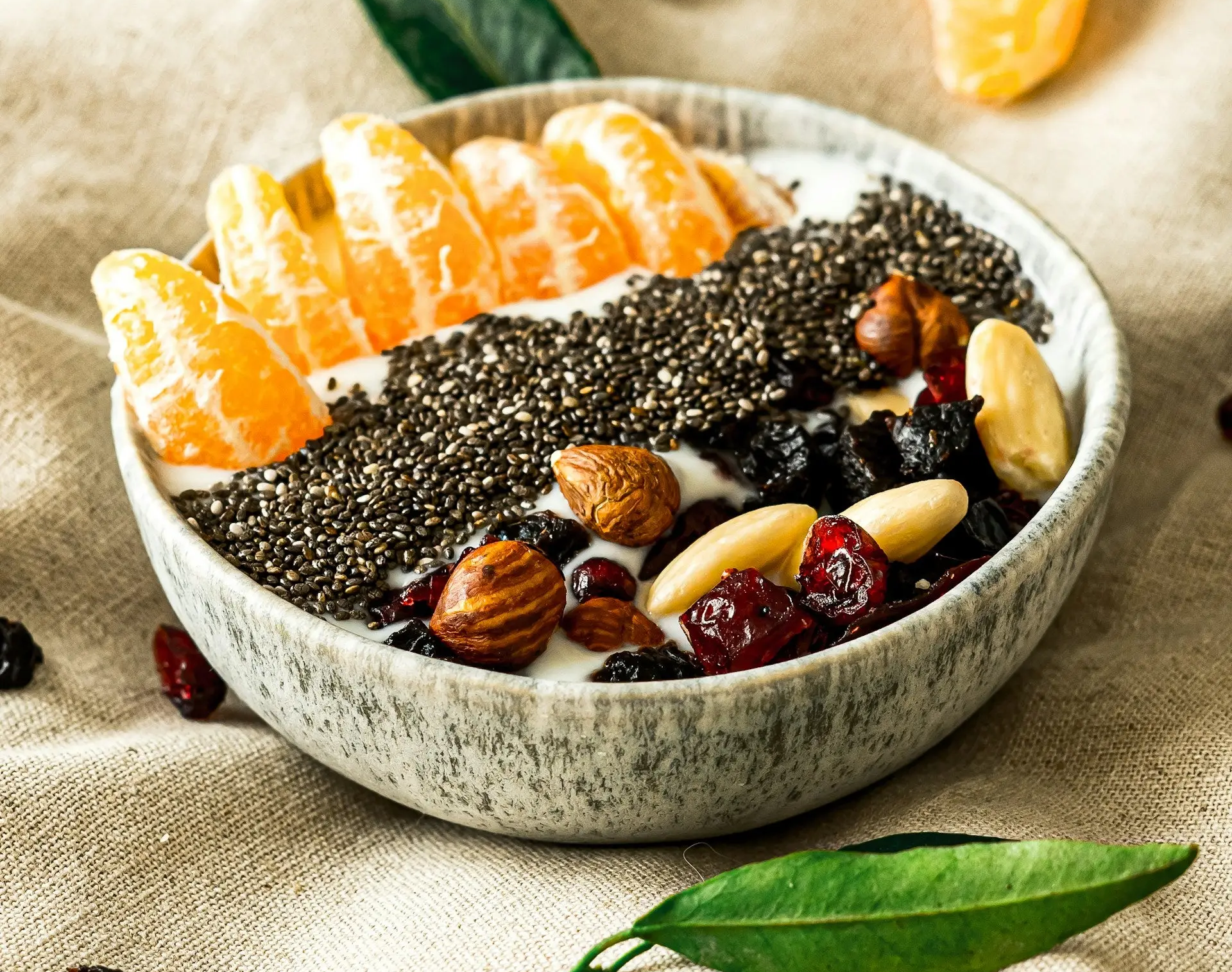Managing Inflammation During Perimenopause: Understanding Its Impact and Effective Treatment Strategies

Ah, the 40s—where life gets real, right? We’re juggling work, family, and maybe even dusting off some old hobbies. Just when you think you’ve got it all figured out, your body starts throwing those lovely perimenopausal curveballs. And one of the biggest? Inflammation. As we navigate the years leading up to menopause, our trusty hormone oestrogen starts to dip. Here’s the kicker: oestrogen is a natural inflammation fighter. So, as oestrogen slowly says its goodbyes, inflammation can decide to move in and make itself right at home.
What does inflammation look like, and how do you know if you have it?
It can sneak up as achy joints, unexplained fatigue, stubborn weight that refuses to budge, and mood swings that make you feel like you’re back in your teenage years. But it doesn’t stop there—chronic inflammation can also raise the risk of conditions like heart disease, diabetes, and osteoporosis, all of which are already on the radar during perimenopause. It’s like the universe’s not-so-subtle way of saying, “Welcome to your 40s!”
Inflammation doesn’t just cause joint pain and fatigue—it also messes with your gut, where a big chunk of your immune system lives. Gut health is closely tied to your body’s overall inflammation levels, and here’s where things get tricky: a study published in The International Journal of Women’s Health found that as oestrogen levels decline during perimenopause, the diversity of bacteria in the gut decreases too. This imbalance can fan the flames of inflammation, setting off a vicious cycle that takes a toll on your overall health and wellbeing. But don’t panic! Understanding what’s happening is the first step in tackling it head-on.
Ten Foods and Habits That Might Be Stirring the Inflammatory Pot
- Unhealthy Eating Patterns: Skipping meals or following an overly restrictive diet to try and combat the bloating that often comes with declining oestrogen can lead to imbalanced nutrition, which may cause or exacerbate inflammation.
- Overtraining or Excessive Exercise: While moderate exercise reduces inflammation, excessive or intense exercise without adequate recovery can lead to chronic inflammation due to constant physical stress on the body.
- Poor Sleep: Insufficient or poor-quality sleep can lead to increased levels of inflammatory markers in the body. When sleep is limited, blood pressure may remain elevated instead of decreasing as it normally would, potentially causing the cells in blood vessel walls to initiate an inflammatory response23.
- Chronic Stress: Persistent stress triggers the release of cortisol and other stress hormones that can promote inflammation over time.
- Sedentary Lifestyle: Lack of physical activity can contribute to weight gain and increased fat tissue, which is associated with higher levels of inflammation.
- Smoking: Cigarette smoke contains thousands of chemicals, including nicotine, tar, and various toxic compounds. These chemicals irritate and damage the lining of the respiratory tract and other tissues in the body, triggering an inflammatory response.
- Processed Foods: Think packaged snacks, processed meats like bacon, fast food, sugary cereals—basically anything that tastes amazing but isn’t doing our body any favours. These ultra-processed foods are loaded with additives like emulsifiers, artificial colours, and flavour enhancers that can irritate and inflame our gut lining.
- Dietary Sugars: Think sugary drinks like energy drinks, and even sweet treats like ice cream. Studies have shown that dietary sugars can boost inflammatory messengers in the body, leading to chronic low-grade inflammation.
- Alcohol: While an occasional glass of wine is generally fine, excessive alcohol consumption can significantly increase inflammation, particularly in the liver. As the liver metabolises alcohol, it produces harmful by-products like acetaldehyde, a toxic compound that can damage liver cells. Alcohol also disrupts the balance of the gut microbiome by killing off beneficial bacteria and encouraging the growth of harmful bacteria, further promoting inflammation.
- Trans Fats: Commonly found in fried foods and some baked goods, trans fats are notorious for promoting inflammation. They disrupt the body’s ability to metabolise fats efficiently, leading to fat accumulation in tissues, which in turn triggers an inflammatory response.
How to Reduce Inflammation Naturally
Luckily, Mother Nature has us covered. Here are some foods that can help soothe perimenopausal inflammation. They are all part of a Mediterranean-style diet, which is renowned for being rich in antioxidants, healthy fats, and anti-inflammatory compounds. This diet also minimises processed foods, refined sugars, and unhealthy fats, all of which can promote inflammation.
- Fruits and Veggies: Berries, leafy greens, broccoli—these are your anti-inflammatory superheroes, packed with antioxidants to fight off oxidative stress.
- Healthy Fats: Omega-3s from salmon, walnuts, and flaxseeds, plus the goodness of olive oil, have anti-inflammatory resolvins that reduce inflammation and help lubricate stiff joints.
- Whole Grains: Quinoa, brown rice, oats—these have a lower glycaemic index and are high in fibre, which is great for your blood sugar, gut and inflammation levels.
- Nuts and Seeds: Almonds, chia seeds, flaxseeds—these little guys are packed with healthy fats, fibre, and antioxidants.
- Herbs and Spices: Turmeric, ginger, garlic, cinnamon—these add flavour and have anti-microbial and anti-inflammatory properties.
- Fermented Foods: Yogurt, kefir, sauerkraut—these increase the ratio of beneficial bacteria in the gut, promoting a healthy gut microbiome, which is key to keeping inflammation in check.
Easy Tips for Naturally Reducing Inflammation
So, what can you do to show inflammation the door? Here are some simple but effective tips:
- Eat a Balanced Diet: Focus on whole foods—fruits, veggies, whole grains, lean proteins, and healthy fats. Your body will thank you.
- Sauna: For managing inflammation, incorporating a sauna into your regular wellness routine can be beneficial. The intense heat from a sauna boosts circulation by increasing oxygen-rich blood flow, which helps reduce inflammation, decrease swelling, and relieve chronic pain.
- Stay Hydrated: Water helps flush out toxins and keeps your body’s inflammatory pathways running smoothly.
- Manage Stress: Chronic stress is a biggie when it comes to inflammation. Try yoga, meditation, or just carving out time for yourself when life gets crazy.
- Get Moving: Regular exercise, whether it’s walking, swimming, or yoga, helps reduce inflammation and boosts your overall health.
- Prioritise Sleep: Aim for 7-9 hours of quality sleep per night. Your body needs it to recover and fight inflammation.
- Limit Alcohol and Avoid Smoking: Both can contribute to inflammation, so it’s wise to keep alcohol in moderation and consider quitting smoking if you haven’t already.
Inflammation might not be the most glamorous topic, but it’s worth paying attention to, especially as you navigate those perimenopausal years. By making a few smart changes to your diet and lifestyle, you can keep inflammation at bay and feel your best during this transition. Remember, it’s all about balance and consistency—small steps add up to big changes for your long-term health.
Photo by Daiga Ellaby on Unsplash


